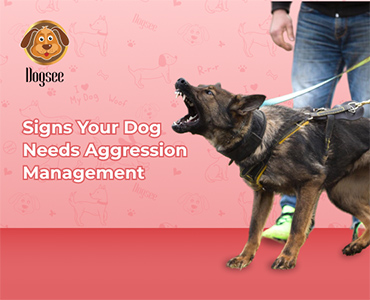
Just like humans, dogs also experience a range of emotions, including joy, excitement, and unfortunately, depression. It might be surprising to some that dogs can experience prolonged periods of sadness or withdrawal, but research has shown that dogs can indeed suffer from mental health issues.
This realization has led to exploring different therapies to support dogs through these emotional challenges, such as pet therapy. Dog hypnosis is one such method in pet therapy which is beginning to gain attention.
While hypnosis is commonly associated with helping humans manage stress, anxiety, and phobias, some pet parents and professionals are considering whether it could be effective in addressing depression in dogs as well.
This article delves into the concept of dog hypnosis, why dogs might get depressed, and whether hypnosis might be a helpful method for managing depression in our furry companions.
What is Dog Hypnosis?
Hypnotherapy and depression are often linked when discussing treatments for mental health challenges. Hypnosis is a technique used to help individuals enter a state of deep relaxation and heightened suggestibility. For humans, it’s often used to manage stress, fears, and even certain habits or behaviours.
Hypnosis for dogs, however, is a relatively new concept and differs in approach. Since dogs cannot communicate verbally or comprehend verbal cues in the same way humans do, dog hypnosis relies on non-verbal signals, calming techniques, and body language to induce a relaxed state.
The process of dog hypnosis generally involves guiding the dog into a state of deep relaxation, often through gentle stroking, soothing words, and the use of calm environments.
Hypnotherapists who specialize in working with animals, or even pet parents who learn the techniques, aim to encourage dogs to relax their bodies and become less reactive to external stimuli. This relaxed state, similar to the relaxation response in humans, can potentially relieve stress and, over time, help dogs adjust to feelings of unease or sadness.
It’s essential to note that dog hypnosis isn’t about “tricking” a dog’s mind or making them do something against their will. Instead, it’s a way to guide them into a peaceful, calm state where they feel safe. By reducing their stress response, owners and professionals hope to create a setting that may ease some of the symptoms of depression or anxiety that a dog may be experiencing.
Why Do Dogs Get Depressed?

Before examining how hypnotherapy and depression might intersect for potential canine treatments, it’s important to understand why dogs may experience depression. Unlike humans, who can often articulate what they are feeling and why, dogs express their emotions through behaviour changes. Some common triggers that may lead to depression in dogs include:
Loss or Separation
Dogs are highly social animals that form strong bonds with their family members. When a pet parents or fellow pet passes away or leaves, a dog may feel a profound sense of loss and isolation, which can lead to depression. This is commonly seen in cases where a dog loses a companion animal or human family member with whom they were very close.
Changes in Environment
A significant change, like moving to a new house, can be disorienting for a dog, especially if they were previously settled and comfortable in their old environment. Dogs thrive on familiarity and routines, so disruptions to their environment can sometimes lead to anxiety and depression.
Lack of Stimulation
Dogs need physical exercise, mental engagement, and social interaction. Without these, they may become bored, restless, and eventually depressed. Lack of stimulation is particularly a concern in highly active or intelligent dog breeds, such as Border Collies or German Shepherds, who require consistent mental and physical activity to feel content.
Health Issues
Sometimes, underlying health problems like chronic pain, hormonal imbalances, or neurological issues can lead to mood changes in dogs. Dogs who are suffering from undiagnosed conditions may show symptoms of depression because they don’t feel well and cannot engage in the activities they once enjoyed.
Trauma or Past Abuse
Dogs who have been through traumatic experiences or have suffered abuse often experience higher levels of stress and may exhibit symptoms of depression. Rescue dogs or those coming from difficult backgrounds are particularly prone to lingering emotional issues.
Recognizing depression in dogs is key to addressing it effectively. Common signs include loss of appetite, decreased interest in play, avoidance of interaction, prolonged periods of sleep, and overall lethargy.
Can Dog Hypnosis Help with Depression?

While dog hypnosis is still a relatively new field, many professionals and pet parents believe it can have a beneficial impact on dogs experiencing emotional issues. The primary purpose of dog hypnosis in addressing depression is to reduce a dog’s stress levels, calm their mind, and create a safe mental space. As a form of pet therapy, it aims to soothe and provide comfort in a non-invasive way, helping dogs to relax and potentially overcome depressive tendencies.
Here’s how it might help:
Inducing Relaxation and Comfort
Depression in dogs often manifests in anxiety or an inability to engage in typical activities. Hypnosis techniques, by guiding a dog into a deeply relaxed state, may help relieve these anxious feelings. A dog that learns to relax through hypnosis may begin to feel more comfortable in their daily environment, which can gradually improve their mood and reduce depressive symptoms.
Building a Sense of Security
Hypnosis sessions can be a bonding experience between the dog and their pet parents, especially when they conduct the sessions themselves. As the dog becomes accustomed to the calming techniques and knows what to expect, they may begin to associate these sessions with positive feelings of security. Over time, this can help build resilience against emotional triggers, like separation anxiety or environmental changes.
Positive Reinforcement and Calm Conditioning
Consistency is crucial in dog training, and the same holds for hypnosis. Regularly practising calm, relaxing sessions may help condition a dog’s nervous system to react less intensely to stressors, reducing signs of depression. Although hypnosis doesn’t “cure” depression, it may help alleviate its symptoms, making it easier for a dog to cope with changes or losses.
Improving Focus and Mental Health
Engaging a dog’s mind through calming exercises can stimulate their brain in a low-stress way, which may be beneficial for mental health. Like humans, dogs benefit from stimulation that promotes a positive mental state. Hypnosis may help redirect a dog’s focus from sadness or distress to calm and contented feelings, offering a beneficial break from depressive symptoms.
While there is limited scientific research specifically on dog hypnosis for depression, anecdotal evidence suggests that the calming effects can make a difference in many dogs’ emotional states. However, it’s essential to remember that hypnosis for depression alone may not “cure” depression. It’s often best when used in conjunction with other supportive practices like regular exercise, balanced nutrition, and veterinary guidance.
Important Steps and Tips for Hypnosis with Dogs

To start with dog hypnosis, pet parents may consider working with a pet hypnotherapist or learning techniques from a trusted source. Here are some essential steps to keep in mind:
Create a Calm Environment: Choose a quiet room where your dog feels comfortable and relaxed. Dimming the lights and playing soothing music can help create a peaceful atmosphere.
Use Gentle, Repetitive Actions: Softly stroking your dog or using a calming voice can help encourage them to settle into a relaxed state. Some hypnotherapists use specific cues or phrases to signal the beginning of a hypnosis session.
Allow Your Dog to Guide the Session: Watch for signs that show your dog is responding positively, such as a softened body posture, half-closed eyes, or reduced tension. End the session if your dog appears restless or uncomfortable.
Be Consistent: Regular practice is key to establishing positive outcomes. Short, consistent sessions can be more effective than lengthy, infrequent attempts.
Conclusion
While hypnosis for depression may not be a standalone solution for canine depression, it can be a valuable tool in a holistic approach to supporting a dog’s mental health. By promoting relaxation, reducing stress, and fostering a sense of security, hypnosis for depression can complement other treatments and help create a positive environment for dogs experiencing depressive symptoms.
Depression in dogs is a genuine concern that requires patience, understanding, and often a multifaceted approach, including veterinary guidance, exercise, and proper nutrition. Hypnosis for depression may offer an additional way to connect with and comfort your dog, ultimately contributing to a happier, healthier life for your beloved pet.
Frequently Asked Questions (FAQs):
1. Can dogs really experience depression, and how can I recognize it?
Answer: Yes, dogs can experience depression, often showing signs like reduced energy, changes in appetite, and loss of interest in activities they once enjoyed. They may also become withdrawn or lethargic.
2. What is hypnosis for dogs, and how does it differ from human hypnosis?
Answer: Hypnosis for dogs is a relaxation technique that uses calming cues and non-verbal signals to induce a peaceful state, unlike human hypnosis, which often relies on verbal suggestions.
3. How can hypnosis for depression benefit my dog?
Answer: Hypnosis may help reduce stress and anxiety in dogs, creating a calm mental state that can alleviate some depressive symptoms, especially when combined with other supportive care.
4. Are there any risks to trying hypnosis on my dog?
Answer: Hypnosis for dogs is generally safe when practised by a trained professional or under the guidance of a qualified animal behaviourist. Always consult with a vet before starting any new therapy.
5. What causes depression in dogs, and can hypnosis address these causes?
Answer: Common causes include loss of a companion, changes in environment, or lack of stimulation. While hypnosis can’t address these causes directly, it can help by creating a calming effect that makes them feel more secure.
Don't forget to follow us on Instagram and Facebook so that you stay up-to-date about our latest products and promotions.
 HELPFUL0 people found it helpful
HELPFUL0 people found it helpful
Related Blogs
Subscribe to Our Blogs
and never miss on the latest update!



















